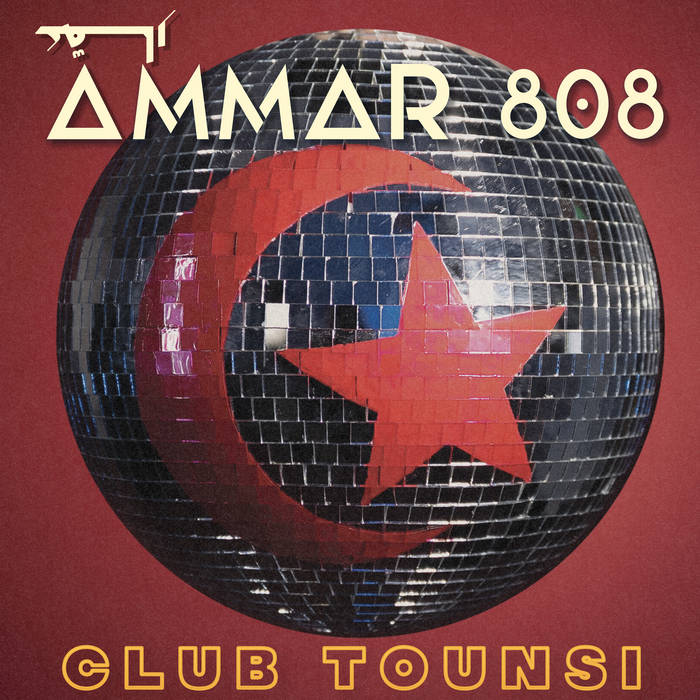“It was a magical process – I heard this music all the time growing up. It’s like coming home,” says Ammar 808, the moniker of Sofyann Ben Youssef, reflecting on the creation of his latest album. The Denmark-based Tunisian artist has long curated albums that draw on global sounds, incorporating traditional instruments and elements, and suffusing them with modern, club-ready production. His debut album explored traditional North African folk instruments and vocals, blending them with heavy bass and TR-808 drum machine rhythms (hence the name). His follow-up record drew inspiration from South Indian musical traditions and the ancient tales of the Mahabharata. Ammar 808 shuffles expertly through the proverbial library of sonic exploration, both traditionally and contemporarily, without intruding. His music celebrates culture, people, and communication that breach spoken language.
A composite of heartbreak, longing, desire, and divinity, Club Tounsi (named for the Tunisian Arabic word for ‘Tunisian’) returns to the producer’s roots and explores the musical traditions of his home country. Club Tounsi is heavy with a passion unmatched in his earlier discography and masterfully produced. Ammar 808 suffuses Sufi devotional hymns, ancient folk songs, and Arabic scales with Mezoued, a genre of Tunisian folk music named after the goatskin bagpipes. This type of music was stigmatized by polite Tunisian society and originated with immigrants and the working class. Ammar 808 integrates this sound into dance-heavy, club-style beats, connecting the past and the present, the young and the old in a truly distinct, celebratory project.
Club Tounsi hits the ground running with ‘Douri Douri’, featuring the singer Brahim Riahi. The bass-heavy track with its chorus of hand drums lures you into the album’s sound immediately. The dense 808 drums pulse with inviting vigour. All the tracks on this album inspire engagement, or at least a head bob. If you’re passively listening, something is wrong.
‘Ah Yallila’ is another bass-heavy track, integrating a unique sound of industrial futurism with classic traditional sounds of the Mezoud bagpipes and a steadily declining drone. ‘Brobba’ sounds like a reckoning, an endless celebration. Which it is. If bagpipes could shred.
‘Lelliri Yamma’ is more playful in its sound, with the main instrument being the ney reed flute, and the lyrics expressing a poetic declaration of love: “you are sweet like dripping honey”. Even if you can’t understand the lyrics, it isn’t hard to tell which tracks are joyful and which are melancholy. Even the instruments convey a story so thorough that their expression seems to contain complexities of morphemes and syntax.
‘Amman Amman’ is a more mournful track, opening with a retro-futuristic cosmic 80s synth melody before the bass creeps in, joined by echoing vocals, both melancholy and haunting. The Mezoued interjects at the bridge with a haunting and beautifully startling tone, wailing like a desperate negotiation against abandonment. The breakdown sets you off spinning as the melody disappears into an echo, leaving you drifting into a rolling ocean of sound.
Club Tounsi as a whole has an otherworldly grandiosity to it. It’s ethereal, richly textured, and full of meaning. With this album, Ammar 808 introduces a whole new realm of instrumentals and poetry to modern electronic club music. A richly textured mosaic of sound, each track feels like a summoning, a subliminal pull of all the elements and emotions that build it.
Ammar 808 admirably blends mysticism and poetry with ancient tradition and modernity simultaneously. There are aspects that speak intuitively to the soul, and others that call more directly to the body. With so many rhythms and beats in this album, and so much percussion, you may find that the music rewires your brain after listening. The footsteps outside, the clack of your keyboard, the drumming of your fingers on the desk – suddenly it will all sound like music.


